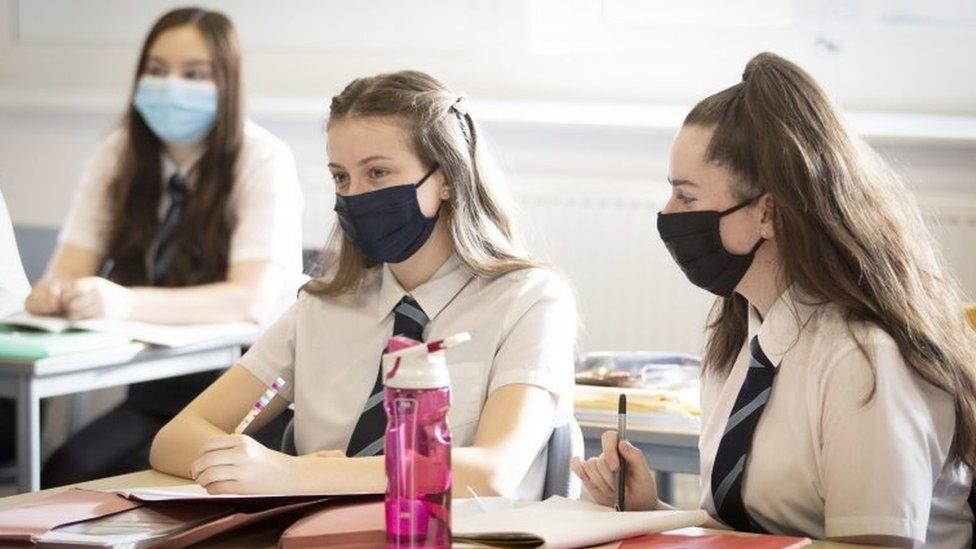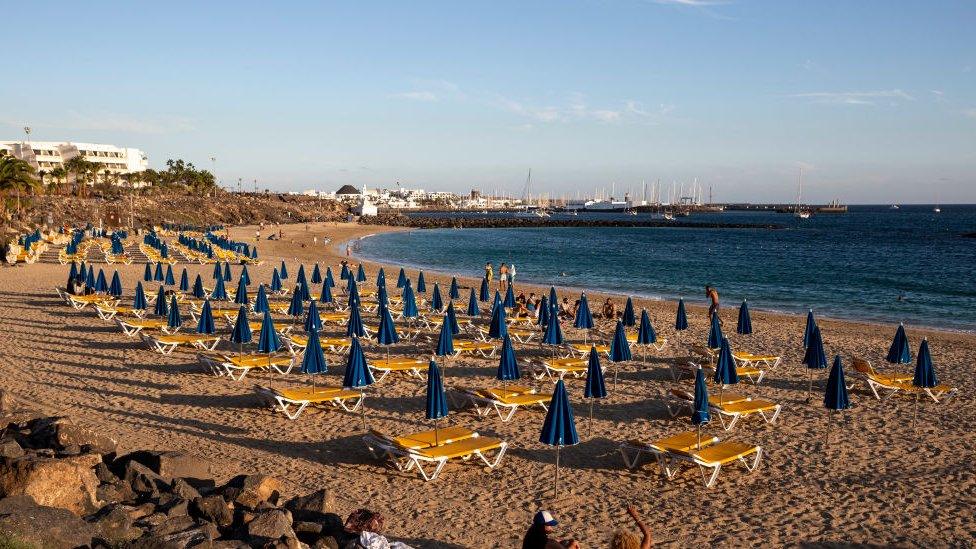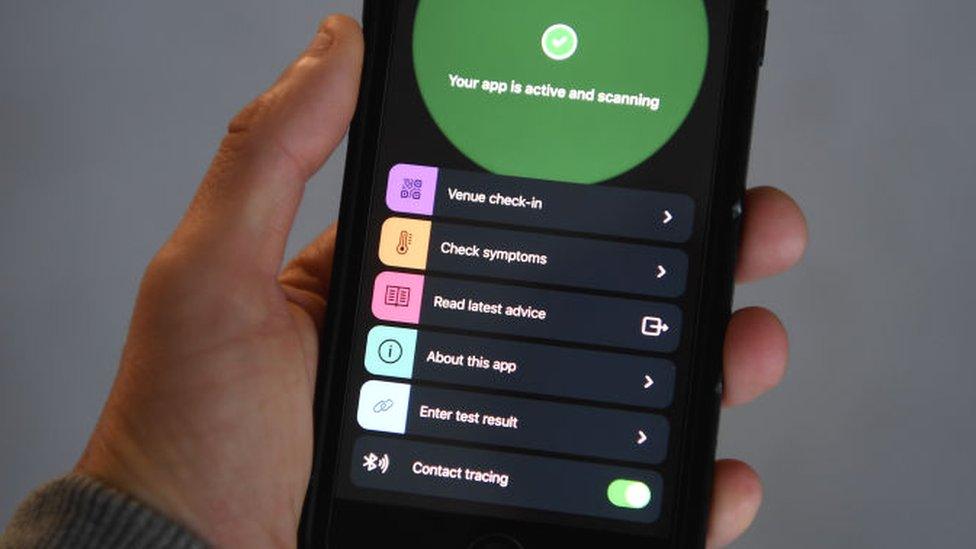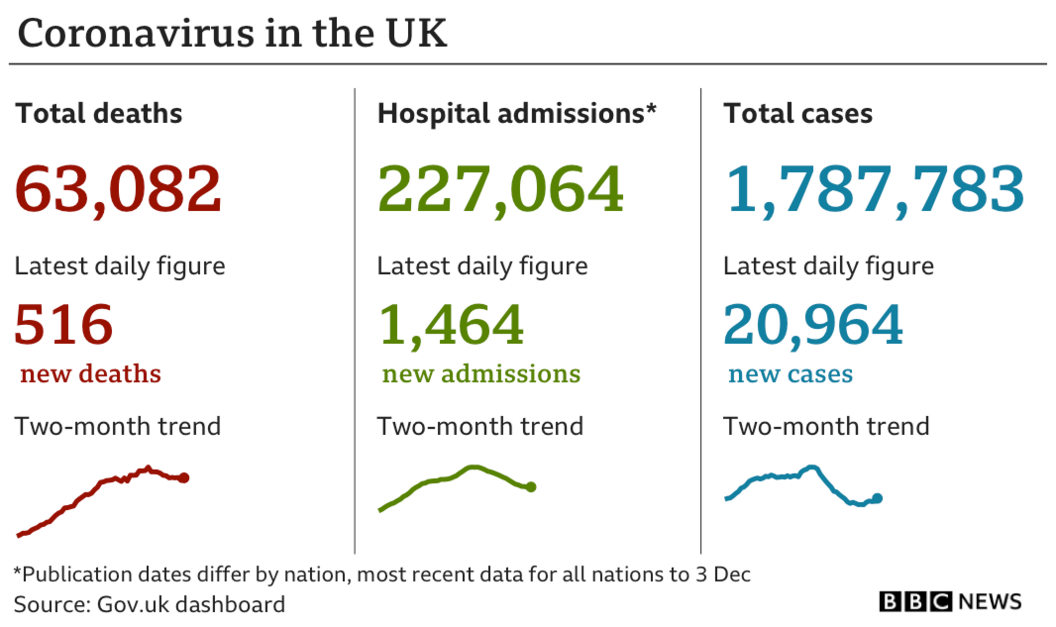Covid-19: School testing plan and Canary Islands added to quarantine list
- Published
Here are five things you need to know about the coronavirus pandemic this Thursday evening. We'll have another update for you on Friday morning.
1. Mass testing for secondary schools as cases rise in the South East
Mass coronavirus testing is to be rolled out for secondary school pupils in some of the worst-affected parts of London, Essex and parts of Kent. Speaking at a Downing Street briefing on Thursday evening, Health Secretary Matt Hancock said the fastest rise in cases is currently among secondary school-age children, noting that the rate among adults is "broadly flat". Schools will get mobile testing units, and Mr Hancock has urged children aged between 11 and 18 and their families to get tested in the coming days. You can read more about mass testing here.


2. Canary Islands added to travel quarantine list
The transport secretary has announced that travellers returning to the UK from the Spanish Canary Islands from Saturday morning must self-isolate for two weeks. Grant Shapps said, external this was because of rising infection rates on the islands. The Canary Islands are popular with winter holidaymakers, being one of the few parts of Europe warm enough for beach holidays. Travellers to mainland Spain already have to isolate. Meanwhile, Saudi Arabia and Botswana have been added to the UK's safe travel corridor list, meaning travellers will not need to self isolate. You can read a full explanation of the travel quarantine rules here.


3. Hospital waiting times 100 times higher than pre-Covid
The number of patients in England waiting over a year for routine hospital care is now 100 times higher than before the pandemic, figures show. Nearly 163,000 out of the 4.4 million on the waiting list at the end of October had waited over 12 months for operations such as hip replacements. There were just 1,600 year-long waiters in February, NHS England data shows. The Royal College of Surgeons warned patients were being left in pain unable to carry on with "day-to-day life".


4. NHS app to offer £500 self-isolation grant
An update to the NHS Covid-19 contact-tracing app for England and Wales is adding a way to apply for a £500 grant if it gives a self-isolation order. Until now, those on low incomes were only offered the payment if they had been told to stay at home by human Test and Trace operators. The move comes at a time when the number of people testing positive for the coronavirus is on the rise again. Experts have suggested following the app's guidance could help reverse that. New figures , externalreveal that the NHS Covid-19 app has been downloaded 20,361,253 times as of 2 December.


5. How life has changed in the city where the pandemic began
While the rest of the world is still battling a second wave of infections, Wuhan - the first city to experience an outbreak of coronavirus - hasn't had any locally transmitted cases for months. So how has Wuhan changed, and what's life like for ordinary people living in the initial centre of the pandemic? You can watch how the Chinese mega-city has changed in the video below.
Covid-19: How everyday life has changed in Wuhan

And don't forget...
...to check out our tips on giving yourself the best chance of avoiding the virus this Christmas.
You can find more information, advice and guides on our coronavirus page.



What questions do you have about coronavirus?
In some cases, your question will be published, displaying your name, age and location as you provide it, unless you state otherwise. Your contact details will never be published. Please ensure you have read our terms & conditions and privacy policy.
Use this form to ask your question:
If you are reading this page and can't see the form you will need to visit the mobile version of the BBC website to submit your question or send them via email to YourQuestions@bbc.co.uk, external. Please include your name, age and location with any question you send in.

BRAND NEW DRAMA 'WE ARE WHO WE ARE': A show about first love and the messy, confusing exhilaration of being a teenager. From the director of Call Me By Your Name.
HOW TO VACCINATE THE WORLD: Who should be at the front of the queue for a vaccine? Those with the greatest need or the highest bidder?
